
Before we look at the BMW B48b20a vs B48b20b engine, we want to take a look at the big BMW products. It was nothing short of the establishment of this Bavarian company, whose name fell on the tongues in 1917. The first engine produced by the German giant of the transport industry goes back to the construction of a linear 6-cylinder engine. This engine has gained the trust of aerospace industry experts in the high skill of BMW engineers.
BMW continued its work in 1936, producing a 2-cylinder BOXER engine. A new idea that added a new standard to the motorcycle industry. Another important event that took place in the same year was the production of a BMW 328 engine for the company’s car. The sports car attracted the attention of fans with a 6-cylinder linear engine and a power of 80 horsepower.
Part of the famous engines produced in this Bavarian company:
- BMW502 (1954)
- BMW 3.0 CSL (1974)
- BMW F1 (1983)
- BMW 524td (1983)
- BMW 750i (1987)
- BMW M5 (2004)
- BMW i8(2014)
So far, we’ve mentioned an excerpt from the history of engine production at BMW to move on to our main topic. BMW b48b20a vs b48b20b two motors with different performance that we want to understand what similarities and differences they have in structure and function.
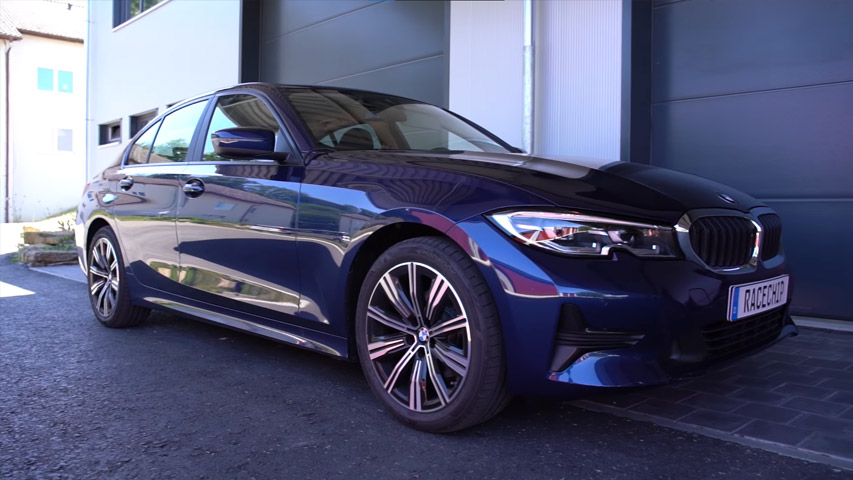
BMW B48b20a vs B48b20b , What is Difference ?
the bmw b48b20a vs b48b20b is a B48 engine manufactured by BMW from 2014 to the present day. BMW considered the B48 turbocharger engine to succeed the popular N20 engines. The a20 model was produced for front-wheel drive cars and the b20 for rear-wheel drive. The German automaker used a direct fuel injection system with a linear aluminum cylinder block in the production of the B48 four-cylinder engine.
For each cylinder, the cooling jacket and plasma spray are placed to give the hydraulic system of this 16-valve engine a good upgrade. The engine is supplied with the VANOS phase regulator system. A system that makes the right timing to change the valve. When the driver presses the accelerator pedal and reaches the RPM range, the electric Valve is activated and the engine oil flows into the engine. As the oil pressure increases, the VANOS gears are used and show their performance.
B48b20b Engine
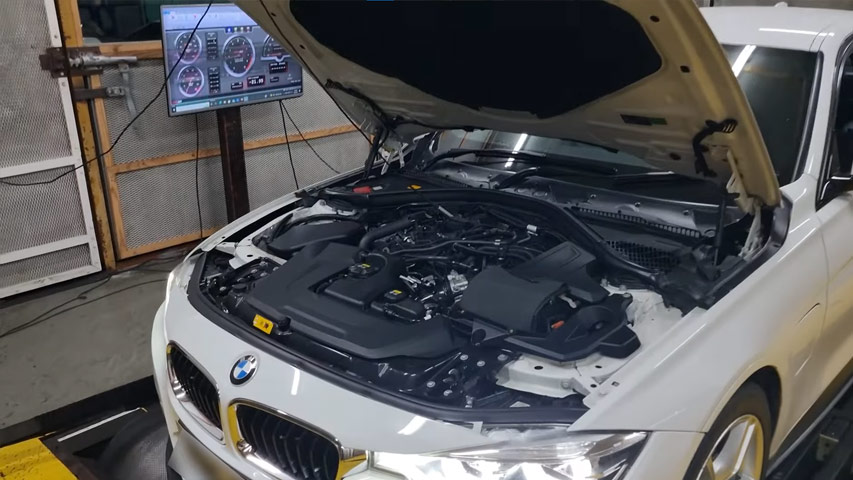
the b48b20b Engine was first placed on the MINI Cooper s in 2014 to make the beating heart of the car attractive. This all-fan engine is used in most BMW cars and even in the 2019 Toyota Supra. The following are the cars that have already been powered by the engine b48.
| Car name | motor b48 |
| BMW i230 | 2016 to present |
| Gran Coupé xDrive 228i | 2019 |
| X3 20i | 2018 to now |
| X2 20i | 2017 to now |
| Clubman JCW | 2019 |
| MINI John Cooper Works GP | 2020 |
| BMW M35i | 2019 |
The maximum power of the b48b20b motor is between 248 and 305 hp. It has a 4-cylinder engine with a 2.0-liter engine that performs well. It is no exaggeration to say that few market engines have the ability to compete with this b48. The following diagram examines the performance of the engine at different speeds.
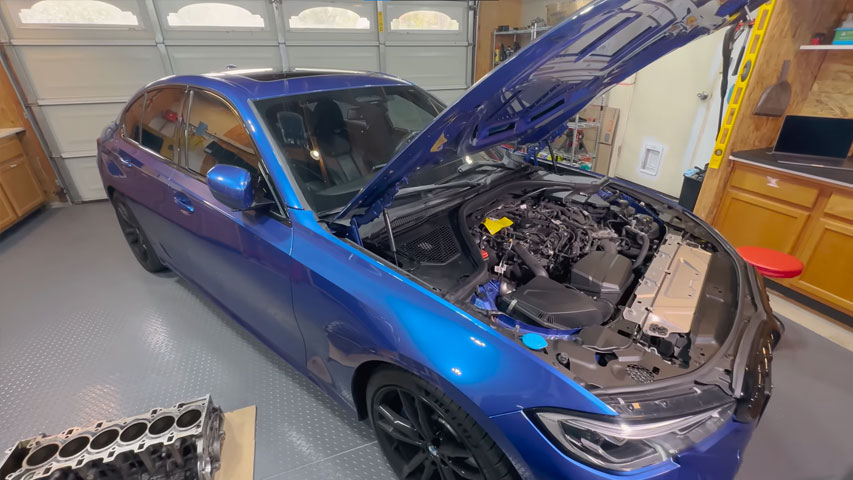
Disadvantages of the motor b48b20b
The disadvantages are the things that neglect damages the engine. Car maintenance is more important than buying a car, you can buy a good car that technically meets all your expectations, but you may be unable to afford it by buying a car. The B48 engine has an acceptable oil consumption, but after 100,000 kilometers, the valves are damaged and tanned.
A common technical problem with the fuel ventilation valve has caused a short-term replacement, but it doesn’t cost the owner much, but it needs to be handled in a timely manner. BMW faced a lot of reports in 2019 about the performance of the b48b20b, and the company examined the engine’s defects during a call, and it turned out that the bearing needles of the engine had to be replaced. The most important thing about maintaining this engine is to change the engine oil in time, and if you take it lightly, you’ll have a lot of problems.
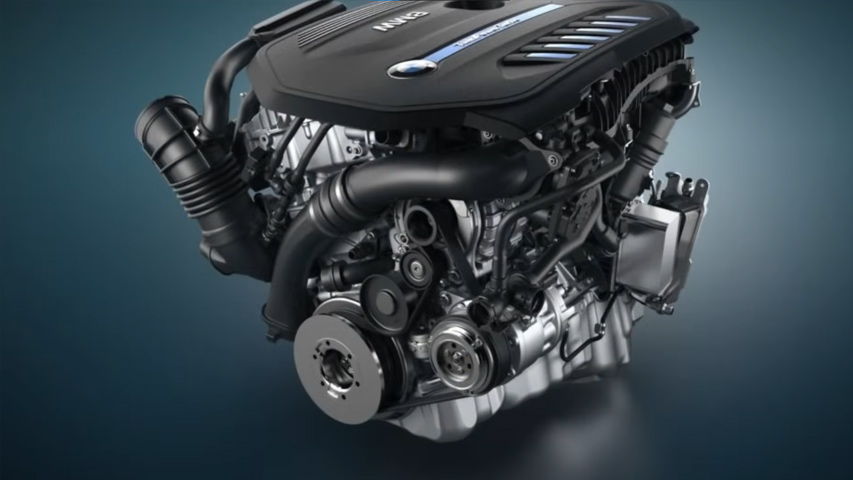
B48b20a vs B48b20b
Compared to two b48b20a vs b48b20b engines, we’ll look at how they work on differentials. Axes are the occurrence of engine power, meaning that engine power affects them. Front-wheel drive vehicles ( .. ) Against the rear differential .. They are made up of fewer parts and have less wear and tear. The biggest advantage of rear-wheel drive cars is increased steering.
The engine power in the rear axle cars is transmitted to the rear wheels by The Guardian mail. In contrast to the B48b20a vs B48b20b there is a similarity of installation, and both are located in the front of the car. In rear-axle cars, the weight of the car is higher, but when it is worn out, it has more noise and vibration. Rear-axle cars have more acceleration, which is directly related to increased fuel consumption.
| B48 engine specifications | |
| relocation | 1998 CC |
| Output power | 156-450 horsepower |
| Torque | 250 to 450 Newtons per meter. |
| cylinder hole | 82 mm |
| piston course | 94.6 mm |
| Oil capacity | 5.25 liters |
| standard | Euro 6 |
| Engine life | 250,000 km |

B48b20b Compression Ratio
the b48b20b compression ratio refers to the highest and lowest position of the Pistons. The higher the density ratio, the higher the fuel consumption. Machines with higher indicators must receive quality fuel to perform better. Fuel combustion occurs faster in vehicles with low cylinder density ratios.
The top turbocharger of the B48 engine gave the engine the power to show the b48b20b compression ratio at 11:1. The best fuel to take care of this engine is gasoline with an octane of 91 or higher. As you know, the way you drive is directly related to fuel consumption, in fact, the more power you want from the engine, the more fuel you have to consume.
In this section we tried to explain the BMW b48b20a vs b48b20b many commonalities and brief differences between the two engines. This engine is one of the most powerful driving forces in the automotive industry, it’s undoubtedly not flawless, but it wants its own care. If you own a car that has this engine, be sure to pay attention to the service time and operation of the car, this is more sensitive in the rear differential series.
A powerful car like the BMW requires special care. If you can’t handle it, you should skip buying these types of cars. Failure to handle the car, regardless of cost, can cause severe damage to the car and its price. I hope you have received some useful information in this section.
BMW B48B20 Engine Reviews
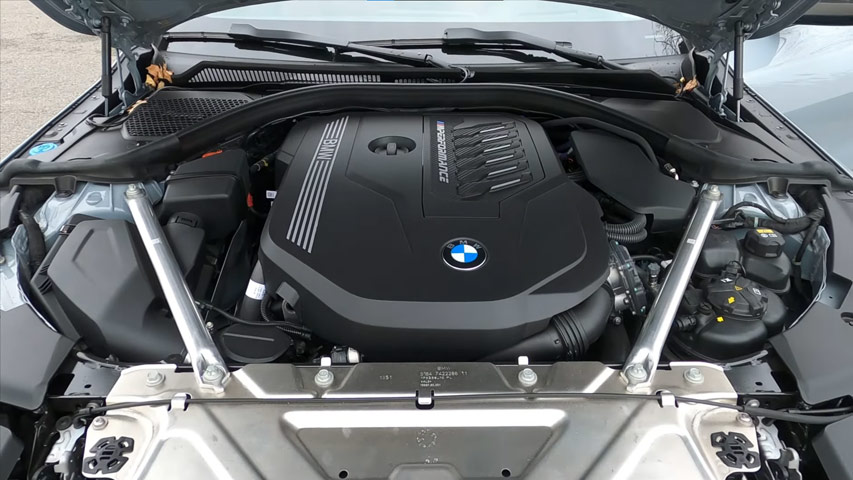
The BMW B48 engine is a highly regarded powerhouse found in many BMW models. Its exceptional performance, excellent fuel efficiency and reliability have made this engine a popular choice among car enthusiasts. In this article, we will look at the different versions of the BMW B48 engine and talk about some of the common problems that BMW owners face. If you own a BMW or are simply curious about this famous engine, get valuable tips and solutions by reading this article.
BMW has produced a series of 2.0-litre B48 gasoline engines since 2014, which are installed on almost the entire range of modern models of the German automaker. There are two versions of this engine: the B48A20 for front-wheel drive cars and the B48B20 for rear-wheel drive cars.
The BMW B48 gasoline engines replaced their counterparts in the N20 family from 2014. These engines have direct fuel injection system, aluminum cylinder block with closed cooling wall and Plasma Spraying in cylinders, 16-valve aluminum cylinder head with hydraulic lifts equipped with volvetronic system (Valvetronic), timing chain and Vanos type phase shifter on input and output valve mill. The engine also features a pair of gear balance Mill, an intercooler integrated into the input manifold, a controlled thermostat, an MG1 Bosch ECU and a twin Scroll MHI td04lr6w turbocharger with separate cooling circuit, radiator and Pump.
In 2018, an updated modification of this engine appeared, usually called the B48TU. The new engines received lighter milling, different side equipment drive, output manifold built into the block head, injection pressure increased to 350 bar, upgraded cooling system, simpler timing with one chain instead of two chains, and the electronic control unit of the eighth generation DME Bosch engine.
All engine models are divided into two main parts based on the type of Gearbox:
B48A20U1: 178 hp, 280 Nm, density ratio 11.0. This engine is installed on the following cars:
● BMW 1 Series F40 from 2020 onwards
● BMW 2 series F44 from 2020 onwards; 2 series F45 in models from 2020 to 2021; 2 Series F46 from 2020 onwards
● BMW X1 F48 from 2020 onwards
● BMW X2 F39 from 2020 onwards
B48A20M0: 192 hp, 280 Nm, density ratio 11.0. This engine is installed on the following cars:
● BMW 2 series F45 in models 2014 to 2018; 2 series F46 in models 2015 to 2018
● BMW X1 F48 in models from 2015 to 2017
B48A20M1: 192 hp, 280 Nm, density ratio 11.0. This engine is installed on the following cars:
● BMW 2 series F45 in 2018 to 2020 models; 2 series F46 in 2018 to 2020 models
● BMW X1 F48 in models from 2017 to 2020
● BMW X2 F39 in models from 2018 to 2020
B48A20O0: 231 hp, 350 Nm, density ratio 10.2. This engine is installed on the following cars:
● BMW 2 series F45 in models from 2014 to 2021
● BMW X1 F48 in models from 2015 to 2022
B48A20T1: 306 hp, 450 Nm, density ratio 9.5. This engine is installed on the following cars:
● BMW 1 Series F40 from 2020 onwards
● BMW 2 Series F44 from 2020 onwards
● BMW X2 F39 from 2019 onwards
B48B20U1: 156 hp, 250 Nm, density ratio 11.0. This engine is installed on the following cars:
● BMW 3 Series G20 from 2020 onwards
B48B20M0: 184 hp, 290 Nm, density ratio 11.0. This engine is installed on the following cars:
● BMW 1 Series F20 in models from 2016 to 2019
● BMW 2 series F22 in models from 2016 to 2021
● BMW 3 Series F30 in models from 2015 to 2018
● BMW 4 series F32 in models from 2016 to 2021
● BMW 5 Series G30 from 2017 onwards
● BMW X3 G01 in models from 2017 to 2021
● BMW X4 G02 in models from 2017 to 2021
B48B20M1: with a power of 184 hp, a torque of 300 Nm and a density ratio of 11. The engine is installed on the following cars:
● BMW 2 Series G42 from 2021
● BMW 3 Series G20 from 2019
● BMW 4 series G22 from 2020
● BMW X3 G01 from 2021
● BMW X4 G02 from 2021
● BMW Z4 G29* from 2019 (in the Z4 model this engine produces a power equivalent to 197 horsepower and a torque equal to 320 Nm)
B48B20O0: with a power of 252 hp, a torque of 350 Nm and a density ratio of 10.2. The engine is installed on the following cars:
● BMW 1 Series F20* in 2016 to 2019
● BMW 2 Series F22 in 2016 to 2021
● BMW 3 Series F30 in 2015 to 2018
● BMW 4 series F32 in 2016 to 2021
● BMW 5 Series G30 from 2017
● BMW 6 Series G32 in 2017 to 2020
● BMW X3 G01 from 2017
● BMW X4 G02 from 2017 (on the 125i model this engine produces a power equivalent to 224 hp and a torque equal to 310 Nm)
B48B20O1: with a power of 258 hp, a torque of 400 Nm and a density ratio of 10.2. The engine is installed on the following cars:
● BMW 3 Series G20 from 2019
● BMW 4 series G22 from 2020
● BMW 6 Series G32 from 2020
● BMW 7 Series G11 from 2019
● BMW X5* G05 from 2019
● BMW X6* G06 from 2019
● BMW Z4 G29 from 2019
In the X5 and X6 models, the engine produces 265 hp and 400 Nm of torque.
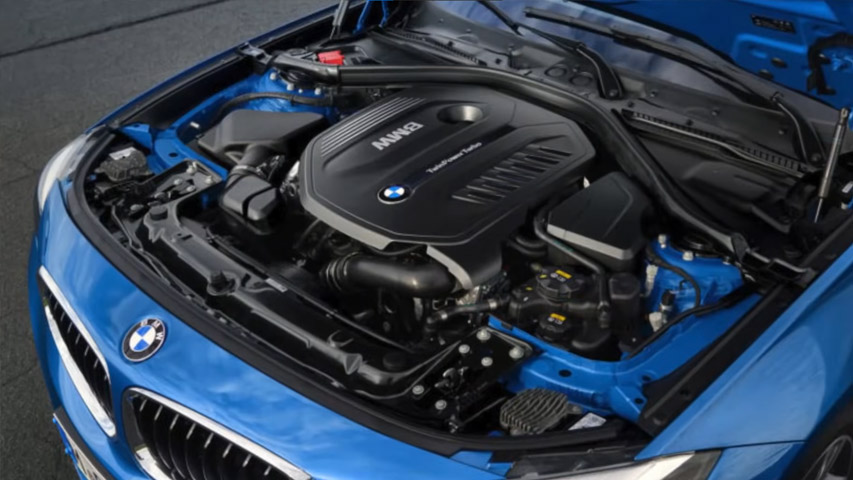
Technical specifications:
| Years of production | from 2014 onwards |
| Engine volume | 1998 cc |
| fuel system | Direct spraying |
| Power output | 156 to 306 horsepower |
| Torque output | 250 to 450 Newtons |
| cylinder block | The useful life of the engine |
| cylinder head | Aluminum 16 valve |
| Cylinder diameter | 82 mm |
| piston displacement | 94.6 mm |
| Density ratio | 9.5 to 11 |
| hydraulic switches. | YES |
| timing type | Chain |
| phase regulator | VANOS |
| turbocharger | YES |
| Recommended engine oil | 0W-30، 0W-40، 5W-30، 5W-40 |
| Engine oil capacity | 5.25 liters |
| fuel type | Gasoline |
| emissions standard | Euro 6 |
| Fuel consumption (for Model 320i F30) per liter per 100 km | Urban 7.9 Road 4.8 Combined 5.9 |
| The useful life of the engine | About 250,000 km |
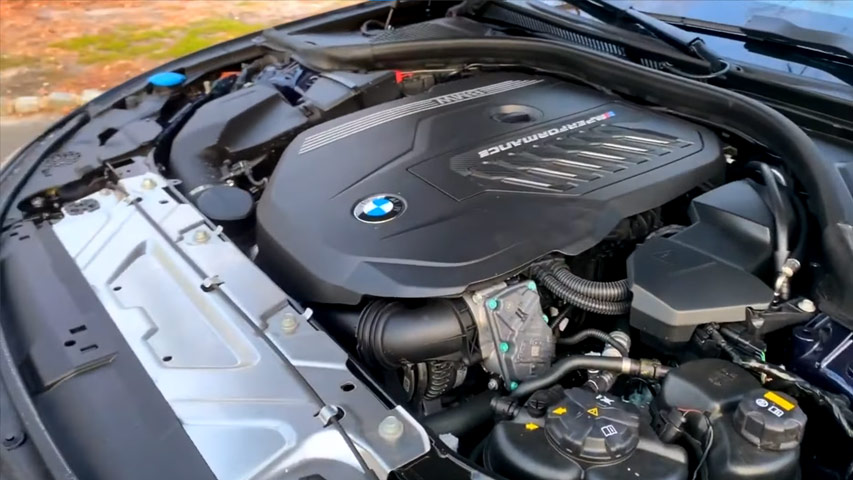
Engine versions of the BMW B48
The BMW B48 engine has gone through several iterations to match different car models and performance requirements. Here are the notable versions:
1. B48B20A
The B48B20A is the basic version of the B48 engine family. The engine has a volume of 2.0 liters, four cylinders and uses technologies such as TwinPower Turbo and Valvetronic. This version is commonly found in BMW base models and balances power and fuel consumption.
2. B48B20B
The B48B20B is a higher performance version of the B48 engine. The engine has a higher power output thanks to advanced settings and modifications. You will usually find this version in BMW’s sportier models, which offers an exciting driving experience without compromising efficiency.
3. B48B20C
The B48B20C is the latest version of the B48 engine. The engine has advanced technologies and modifications that lead to improved power, torque and overall performance. To ensure driving dynamics and optimal fuel consumption, BMW has embedded this version in its latest models.
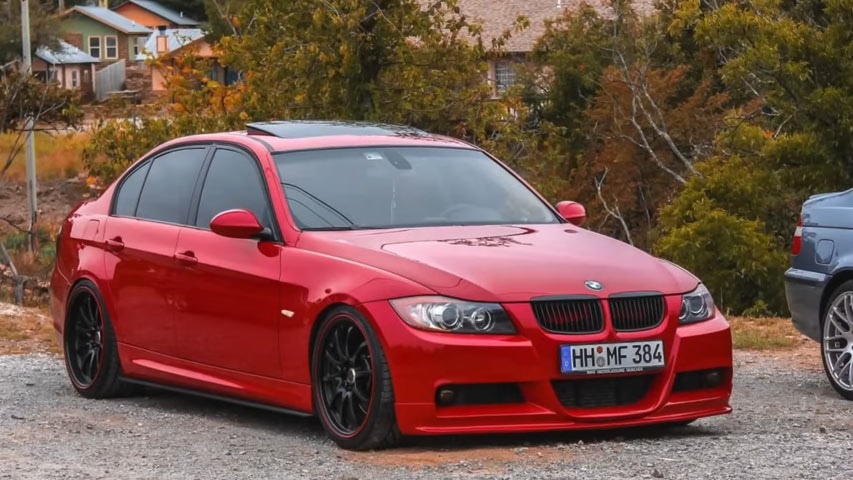
Disadvantages of B48B20 engines
Unlike the previous generation, the B48 series engines are no longer prone to oil consumption, however, close to 100,000 km, the sealing of the valve stem is often tightened and oil consumption appears.
Away in place in a state of relief or frequent occurrence of weak mixed errors, indicates a failure of the fuel tank ventilation valve. But this piece is cheap !
In 2019, a call-up campaign was carried out to replace defective B48 series engines. The problem was the flaw in the needle bearings that supported the balancers.
These engines are sensitive to the quality of fuel consumed and the frequency of oil changes, and if the above is not followed, the initial savings are converted into very expensive repairs or engine replacements.
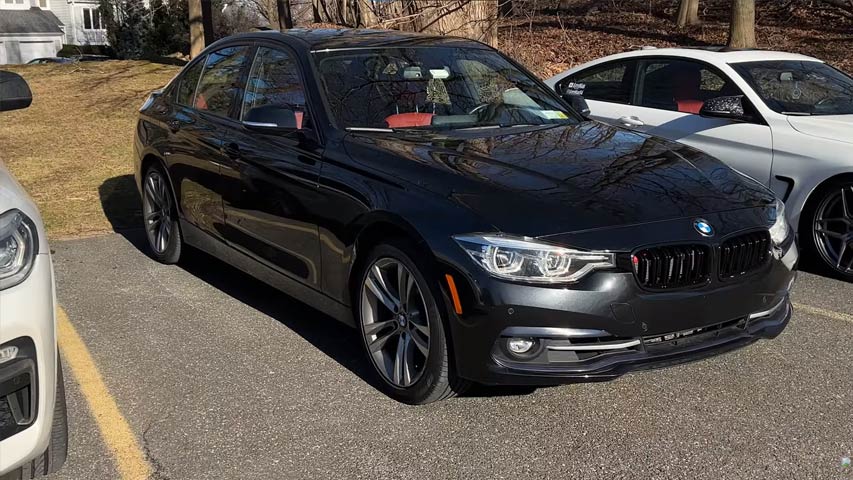
Common problems with the BMW B48 engine
Despite its notable reputation, the BMW B48 engine is no exception to a few common problems. Being aware of these issues can help you diagnose early symptoms and take preventive measures. Here are some of the problems BMW owners may face:
1. Time chain tension failure
One of the main reported problems with the B48 engine is the failure of the time chain tension. This can lead to knocking or tapping noises, eventually resulting in engine damage. Regular maintenance and timely replacement of time chain tension can reduce this problem.
2. Oil leakage
The oil leak is another concern faced by some BMW B48 engine owners. These leaks can occur due to failure of washers, sealants or valve cap. Rapid oil leak detection and repair is crucial to prevent damage to engine components and maintain optimal performance.
3. Carbon accumulation
Like many direct injection engines, the BMW B48 engine is prone to carbon accumulation on the inlet valves. Over time, this can affect the performance of the engine, leading to uneven operation in the steady state, decreased power and decreased fuel efficiency. Regular cleaning and maintenance can help reduce this problem and the smooth operation of the engine.
The BMW B48 engine is a fantastic engineering piece known for its performance and efficiency. Understanding the different versions and common problems associated with this engine can empower BMW owners and enthusiasts. By being forward – thinking and addressing potential problems quickly, you can ensure a reliable and enjoyable driving experience for yourself.
To keep your BMW B48 engine in top condition, regular maintenance and periodic inspections by trained professionals are crucial. Keep yourself informed and up to date by studying the latest maintenance guidelines provided by BMW. By doing this, you can extend the life of your engine and avoid costly repairs in the future.
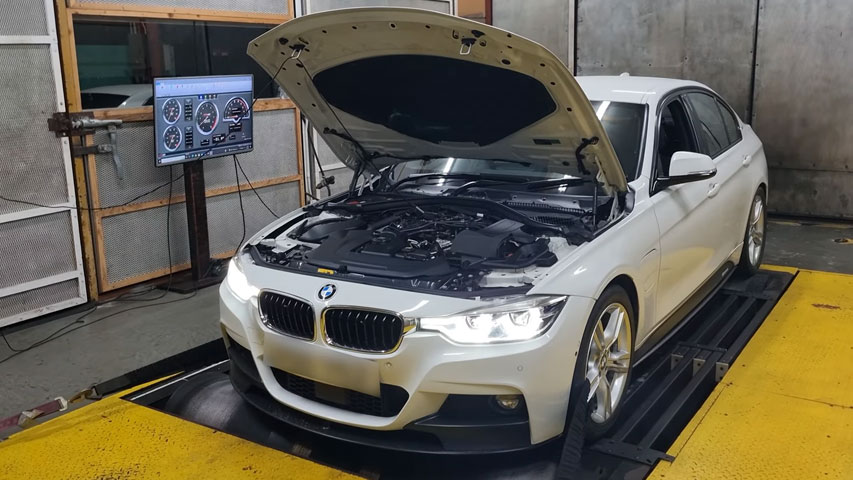
Conclusion
The BMW B48B20 engine is a 2.0-liter 4-cylinder turbocharged engine that has been used in a wide range of BMW models since 2014. The engine has achieved a significant reputation for its strong performance, excellent fuel efficiency and high reliability. The BMW B48B20 engine is a great choice for those looking for a powerful, efficient and reliable engine. With proper care and maintenance, this engine can provide years of impeccable performance.
Source
Wikipedia | BMW-M




2 thoughts on “BMW B48b20a vs B48b20b ; Compare , Details and Problems”